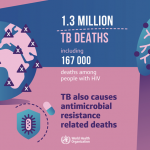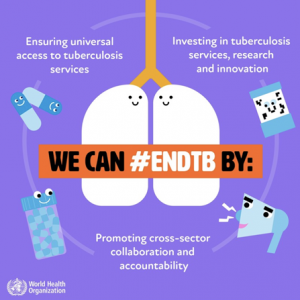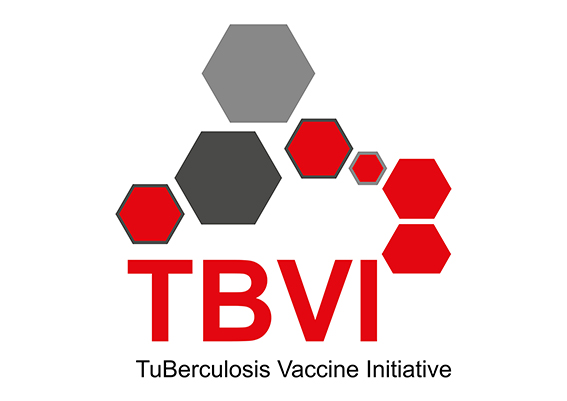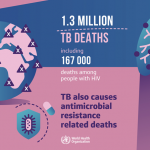World Tuberculosis Day serves as a poignant reminder to raise awareness about tuberculosis (TB). Despite the efforts and promising developments in the fight against this disease, TB remains an endemic that leads to 1.3 million deaths each year.
24 March 2024
Innovations in medical science and public health strategies have provided powerful tools in the fight against TB. The development of more effective diagnostics, vaccines, and treatments has offered hope in what seemed like a challenging situation. However, the journey is far from over, as recent years have witnessed a worrying surge in drug-resistant TB cases. There has been significant progress in development of new drug regimens effective against drug sensitive and drug resistant TB, emerging novel vaccines, and advancements in point-of-care diagnostics. Yet, treatment shortening remains a highly challenging goal, and novel treatment strategies for TB are needed.
 The emergence of drug-resistant strains of TB poses a formidable challenge, requiring a sustained and adaptive response. World Tuberculosis Day emphasises the critical need for research and innovation, calling for a collective push towards the development of novel interventions and the optimisation of existing tools. It acts as a call to action, mobilising global efforts to advocate policy changes and promote research and funding for TB prevention and treatment.
The emergence of drug-resistant strains of TB poses a formidable challenge, requiring a sustained and adaptive response. World Tuberculosis Day emphasises the critical need for research and innovation, calling for a collective push towards the development of novel interventions and the optimisation of existing tools. It acts as a call to action, mobilising global efforts to advocate policy changes and promote research and funding for TB prevention and treatment.
To ensure the most effective and affordable vaccines are developed, it is necessary to invest in all phases of TB vaccine research and development processes.
Joint efforts against TB
Together, European Vaccine Initiative (EVI) and Tuberculosis Vaccine Initiative (TBVI) aim to make significant contributions to the battle against tuberculosis. Both organisations are working on TB vaccines and antimicrobial drug resistance through ITHEMYC, TBVAC-HORIZON, PrIMAVeRA and DRAIGON projects.
organisations are working on TB vaccines and antimicrobial drug resistance through ITHEMYC, TBVAC-HORIZON, PrIMAVeRA and DRAIGON projects.
The ITHEMYC project coordinated by TBVI advances beyond the current state-of-the-art by combining existing TB drug treatment regimens and immunotherapies to develop novel therapeutic options with the potential to shorten treatment duration, improve outcomes and prevent relapse. This multidisciplinary consortium brings together leading expertise and capacity to tackle the challenges of working in new scientific areas to combat the global burden of tuberculosis. While the TBVAC-HORIZON project, also coordinated by TBVI, improves the understanding of lung immunity to TB infection and aims to establish a diversified innovative TB vaccine pipeline targeting mucosal immunity.
EVI-led PrIMAVeRA project (‘Predicting the Impact of Monoclonal Antibodies & Vaccines on Antimicrobial Resistance) seeks to develop mathematical models and an epidemiological repository to assess the impact of vaccines and monoclonal antibodies (mAbs) on antimicrobial resistance (AMR), one of the top ten threats to global health as determined by the World Health Organization (WHO).
Anther EVI-coordinated project, DRAIGON, is an ambitious project aiming to develop a novel diagnostic tool to tackle AMR through the integration of genome sequencing and artificial intelligence (AI) technologies for patients infected with multi-drug resistant pathogens.
World Tuberculosis Day, a date chosen to mark the discovery of Mycobacterium tuberculosis, the bacterium responsible for TB, by Dr. Robert Koch in 1882, serves as a platform for advocacy and awareness. Let’s re-commit ourselves to the goal of a TB-free world, reassuring that “Yes! We can end TB!”.
Acknowledgments:
This work has received funding from the Innovative Medicines Initiative 2 Joint Undertaking under grant agreement No 101034420 (PrIMAVeRa). This Joint Undertaking receives support from the European Union’s Horizon 2020 research and innovation programme and EFPIA. This communication reflects the author’s view, and neither IMI nor the European Union, EFPIA, or any Associated Partners are responsible for any use that may be made of the information contained herein.
DRAIGON project has received funding from the European Union’s Horizon Europe research and innovation programme under grant agreement No 101137383. Funded by the European Union. Views and opinions expressed are however those of the author(s) only and do not necessarily reflect those of the European Union or European Health and Digital Executive Agency (HADEA). Neither the European Union nor the granting authority can be held responsible for them
ITHEMYC receives funding from the European Union’s Horizon Europe research and innovation programme under grant agreement No 101080462. It is funded by the European Union and the UK Research and Innovation. Views and opinions expressed are however those of the author(s) only and do not necessarily reflect those of the European Union or European Health and Digital Executive Agency (HADEA). Neither the European Union, UKRI nor the granting authority can be held responsible for them.

TBVAC-HORIZON receives funding from the European Union’s Horizon Europe research and innovation programme under grant agreement No 101080309. It is funded by the European Union, the UK Research and Innovation, and the Swiss State Secretariat for Education, Research and Innovation. Views and opinions expressed are however those of the author(s) only and do not necessarily reflect those of the European Union or European Health and Digital Executive Agency (HADEA). Neither the European Union, UKRI, SERI nor the granting authority can be held responsible for them.






